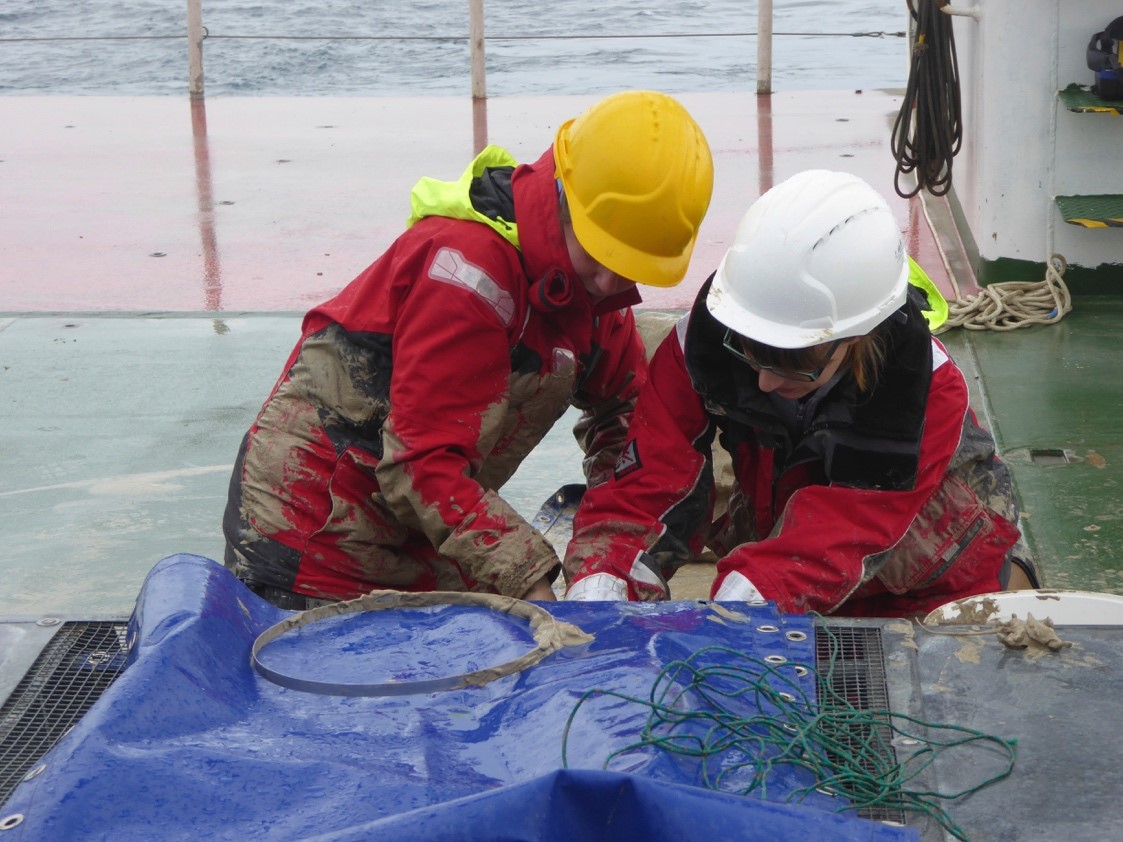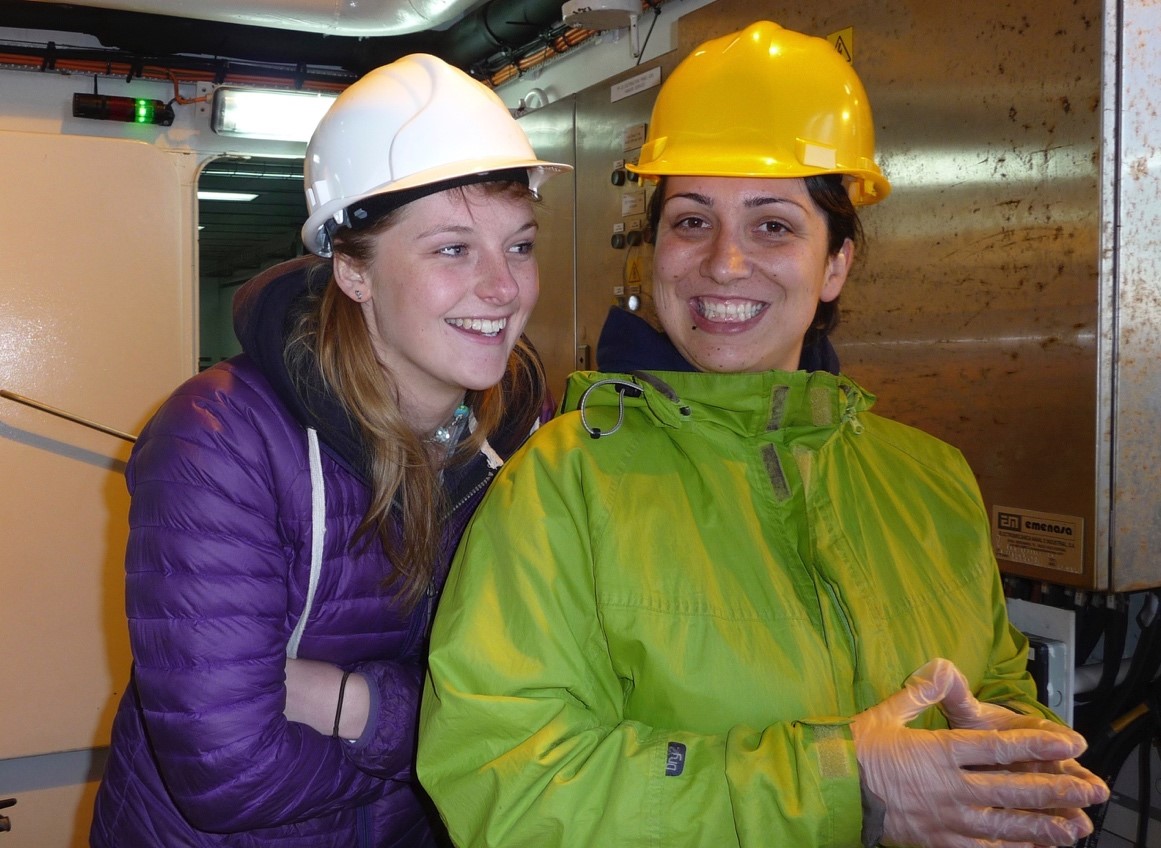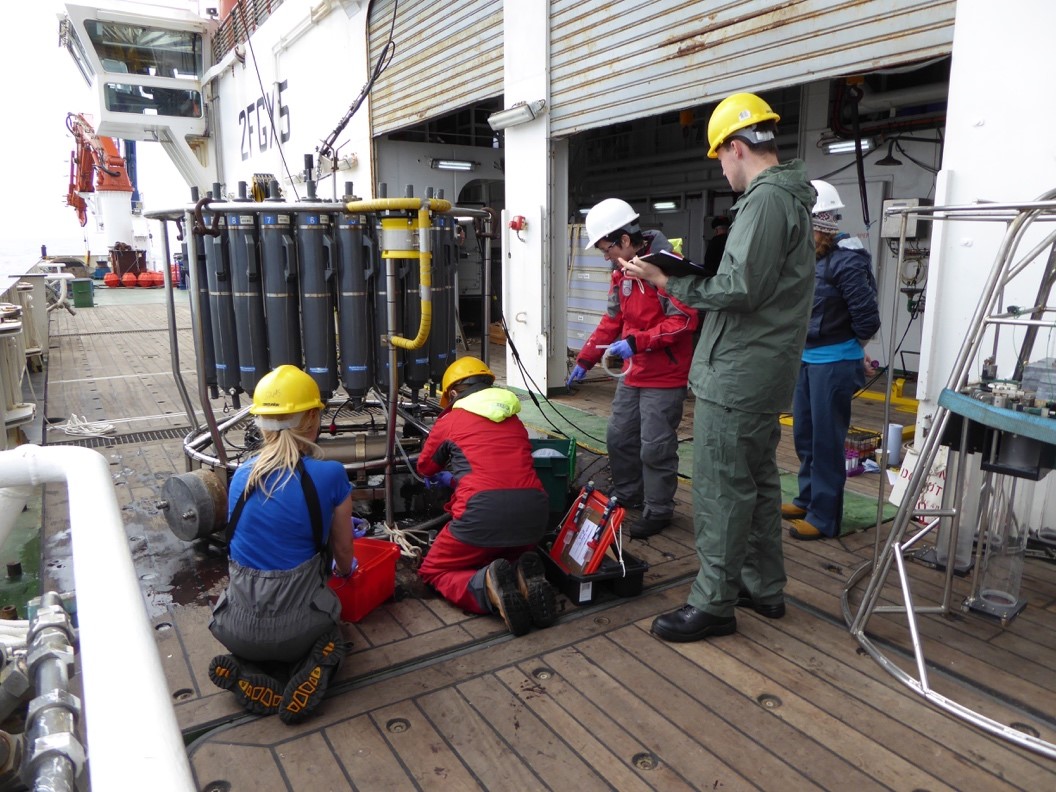CLASS is supporting the academic community and developing the next generation of marine scientists.
Berths on 2024 AtlantiS expeditions - applications now closed
** The deadline for applications has now passed. The applications process will reopen later this year for berths on 2025 expeditions. **
The CLASS sustained observation expeditions and the associated opportunities for access to cruise berths will be available from 2024 - 2028 under the new AtlantiS programme (Atlantic Climate and Environment Strategic Science).
In 2024 two research cruises are planned, with spaces currently available for students and ECRs seeking ship-based field work experience.
Applications can be made via the online application process with the following deadlines:
JC263: January 12th 2024
DY181: January 26th 2024
Applications will be reviewed and successful applicants notified within 4 weeks of the deadlines shown. If further information is required please contact the cruise PI (principal investigator), their details can be found on the application form.
Further information on each of the cruises is provided below.
JC263 is a multidisciplinary research cruise to continue multidecadal observations at the Porcupine Abyssal Plain Sustained Observatory (PAP-SO) including mooring operations and annual sampling and survey of the water column and seabed and turn around a mooring at Whittard Canyon. The cruise objectives are to:
- Recover and redeploy a Met Office mooring with ODAS buoy at PAP-SO
- Recover and redeploy a deep sediment trap mooring at PAP-SO
- Recover and redeploy a sediment trap and ADCP mooring in the Whittard Canyon
- CTD/water sampling at PAP-SO
- Underway measurements of surface ocean biogeochemistry during transits
- Seafloor imaging surveys for benthic ecology
- Seafloor coring, baited traps and scientific trawling for continuation of benthic ecology time series
PI: Andrew Gates (NOC)
Dates (subject to change): Mobilisation starts 17th May 2024, Southampton, UK. Cruise Dates: 20th May – 12th June 2024. Demob ends 14th June 2024, Southampton, UK.
DY181 is a physical oceanography research expedition to complete a CTD/water sample section and recovery and re-deployment of moorings along the Ellet Array. This cruise will also be a platform for servicing the biogeochemical Darwin Mounds mooring. Cruise objectives are to:
- Recover/redeploy Ellett Array moorings (EB1, WB1, WB2, ADCP lander) and remote data recovery from EB1L
- CTD/water-sample section between Iceland, Iceland Basin and Scottish continental shelf
- Deploy a new drift-free pressure recorder (IB5L) at location of mooring IB5
- Recover/redeploy Darwin Mounds sediment trap mooring
- Recover UK OSNAP moorings (IB3, IB4, IB5)
- Redeploy IB4, IB5 as part of the Ellett Array
- Deploy two UK Argo floats
- Deploy/recover 2 telemetry test moorings (RAPID-Evolution)
PI: Kristin Burmeister (SAMS)
Dates (subject to change): Mobilisation 1st July 2024, Aberdeen (UK). Cruise 3rd July – 28th July. Demob Reykjavík (Iceland)
CLASS Fellowships for Early Career Researchers
** The deadline for the last round of applications has now passed. CLASS ends in March 2024 but please check back for news of future opportunitites **
CLASS has an ECR Fellowship scheme to support extended visits by graduate students or postdocs to NOC and SAMS. The purpose of CLASS ECR Fellowships is to support the career development of ECRs by enabling collaborative working with CLASS researchers, as well as access to CLASS facilities, data sets, model output and tools, and berths on CLASS cruises. The research carried out by the ECR during the Fellowship should enhance the CLASS objectives and build on the project's observations and/or modelling and/or technology development.
Applications are invited for CLASS Fellowships at NOC and SAMS. The next deadline is 14 April 2023. Please see the CLASS ECR Fellowships Application Form for more details about the scheme and how to prepare an application.
CLASS Fellowships have been awarded to the following early career researchers:
Sarah Cryer (University of Southampton), to investigate how rivers contribute to coastal ocean acidification through testing innovative new sensors and platforms for monitoring hourly changes and long-term trends in acidity.
Lukas Marx (University of Porstmouth), to investigate how anthropogenic stressors alter nutrient reservoirs in the ocean and the effect that this has on the planktonic community.
Euan Soutter (University of Manchester), to study changes to the transport and burial of ocean carbon in seafloor sediments, and the impacts of this on communities of life on the seafloor. Euan will be analysing sediment cores collected under a previous programme and stored at the British Oceanographic Sediment Core Research Facility (BOSCORF), based at the NOC.
Jade Hatton (University of Bristol), who will optimise a new sensor to study the role of silicon in the growth of Atlantic phytoplankton. Jade will also look at the key role played by this phytoplankton in the global carbon cycle and the Atlantic ecosystem.
Hannelore Theetaert (Flanders Marine Institute), to take measurements on a CLASS GO-SHIP cruise, to study the processes that control the uptake and storage of atmospheric carbon dioxide in the North Atlantic.
Olmo Miguez-Salas (Senckenberg Research Institute, Frankfurt), to collect and carry out bioturbation analysis cores at the Porcupine Abyssal Plain (PAP).
Kay Davis (Leibniz ZMT), to carry out research using novel alkalinity sensors to constrain an overlooked buffer of coastal acidification.
Leah Brinch-Iversen (Syddansk University) to investigate benthic primary productivity and nitrogen cycling in marine sediments using a novel Lab-On-Chip sensor.
Sam Diabates (Maynooth University) to analyse in-situ and remote data of the European Slope Current and its drivers from Goban Spur to the Faroe-Shetland Channel.
Théo Picard (IUEM) to try and answer the question 'Can we link the surface origin of biological particles to deep ocean particle flux at the Porcupine Abyssal Plain (PAP)'.
You can read about their experiences on the CLASS Blog.
Access to model output
CLASS model runs have enormous potential for analysis - way beyond that taking place within the Science programme. We realise that it is not always easy to know where to start in finding and analysing model output, hence CLASS will be running a summer school at the National Oceanography Centre, Southampton, 26 Feb - 1 Mar 2024, to train ECRs in model code, data and tools. For more details, please see the application form. Registration closes 22nd January or earlier if all places are filled.



